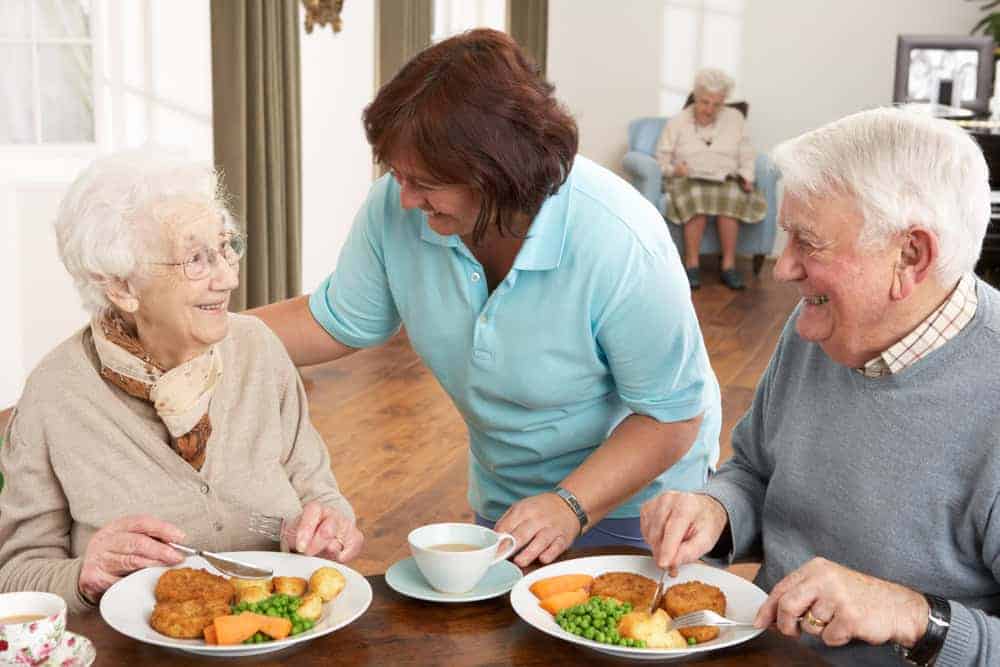
Have you ever wondered how to find the perfect balance of care and independence for your aging loved ones? Choosing the right living arrangement can feel overwhelming, especially when you want them to stay independent but also ensure they get the help they need.
Independent assisted living might be the ideal solution. It provides a safe, supportive environment for seniors to enjoy their freedom. In this article, we’ll guide you through how to find the best option for your loved ones, so you can make an informed and confident decision.
What is Independent Assisted Living?
Independent assisted living is a housing option for seniors who need help with some daily tasks but don’t require constant care. It’s designed to offer the perfect balance between independence and support. Seniors can live in their own compartments, with the freedom to manage most of their day-to-day activities.
However, they also have access to assistance whenever needed, like help with bathing, dressing, or managing medications. This allows them to maintain their autonomy and privacy while feeling secure knowing help is available.
These facilities typically provide services such as housekeeping, transportation, meals, and social activities. This makes life easier without taking away their sense of independence. It’s a great option for those who want to stay active and social, but also want the peace of mind that someone is there when they need support.
How is Independent Assisted Living Different from Other Senior Care Options?

When it comes to choosing the right care option for your loved ones, understanding the differences between senior care types is essential. Independent assisted living blends independence with a support system, but how exactly does it compare to other senior care options like nursing homes, assisted living, and retirement communities? Let’s break it down:
Independent Assisted Living vs. Nursing Homes
- Level of Care: Nursing homes are designed for seniors who require 24/7 medical care and supervision. Residents in nursing homes typically have more complex health conditions that need constant monitoring.
- Independence: In a nursing home, seniors receive hands-on care for almost every aspect of daily life, from eating and bathing to mobility. Independent assisted living, on the other hand, allows residents to maintain their autonomy, assisting only when necessary.
- Living Environment: Nursing homes have a more clinical setting, with medical staff always present, whereas independent assisted living is more like an apartment or community setting, providing a homelike environment with access to help when needed.
Independent Assisted Living vs. Assisted Living
- Level of Support: Assisted living facilities provide more intensive, daily assistance for seniors who may struggle with activities like dressing, bathing, and medication management. In independent assisted living, residents only receive help when they request or need it, such as with meal preparation, cleaning, or occasional personal care.
- Independence: While assisted living residents often rely on daily support, those in independent assisted living can take care of themselves most of the time. They have their own private space and can manage their routine, but they also benefit from available services like housekeeping, laundry, or transportation.
- Costs: Assisted living is generally more expensive due to the increased level of care. Independent assisted living offers a more cost-effective option for those who need less frequent support.
Independent Assisted Living vs. Retirement Communities
- Support Services: Retirement communities focus on active, independent living for seniors who don’t require any personal or medical assistance. There are typically no caregiving services available in retirement communities. Independent assisted living, however, combines the independence of a retirement community with optional support services like help with medication or personal care, as needed.
- Social Activities: Both retirement communities and independent assisted living offer social activities, fitness programs, and communal dining to keep residents active and engaged. However, independent assisted living takes it a step further by offering additional support if and when the senior needs it.
- Flexibility: In retirement communities, there’s generally no flexibility in transitioning to higher levels of care. Independent assisted living, however, offers the option to scale up the level of assistance as your loved one’s needs evolve.
5 Benefits of Independent Assisted Living

Choosing the right living situation for your loved one is a big decision. Independent assisted living offers a range of benefits that can enhance their day-to-day life. Here are five key reasons this option could be the perfect fit for your family.
Social Engagement Opportunities
One of the biggest perks of independent assisted living is the chance for seniors to stay socially active. With organized events, group activities, and common areas to meet others, building friendships and avoiding the isolation that sometimes comes with aging is easy.
Access to Medical Care
Residents in these facilities have easy access to medical support, whether it’s regular health check-ups or assistance with medications. Knowing that healthcare is close by provides peace of mind for both seniors and their families.
A Safer Living Environment
Independent assisted living facilities are designed with seniors’ safety in mind. Features like emergency call systems, grab bars, and trained staff on hand reduce the risk of accidents and provide added security.
Reduced Family Caregiver Burden
Family members often take on the responsibility of caregiving, which can be overwhelming. Moving a loved one into an independent assisted living facility ensures they get the help they need, allowing family members to step back and focus on spending quality time together instead.
Improved Quality of Life
By having help with daily tasks, access to medical care, and a safe, supportive environment, seniors can enjoy a higher quality of life. They can focus more on their hobbies, and friendships, and enjoy their golden years without the constant stress of managing everything alone.
How Do You Determine Your Loved One’s Needs?

Finding the right independent assisted living starts with understanding your loved one’s unique needs. Here are some key factors to consider:
Evaluate Physical and Emotional Needs
Start by assessing what daily activities they need help with. Do they need assistance with bathing, dressing, or getting around? It’s also important to think about emotional needs. Does your loved one crave companionship or social interaction? Being in a community where they can make friends and stay active can greatly impact their well-being.
Assess Medical and Mobility Requirements
Next, assess their health. Do they have any chronic conditions that need regular medical attention? It’s also essential to look at their level of mobility. If they have trouble walking or need a walker or wheelchair, you’ll want to find a place that can cater to those needs.
Consider Lifestyle Preferences and Social Needs
Your loved one’s hobbies and interests should play a big role in your decision. Do they enjoy certain activities or social groups? Also, think about the type of community they’d prefer. Do they like a smaller, more intimate setting, or would they prefer a larger, bustling environment? Don’t forget about the location – being close to family or friends can provide comfort.
Plan for Future Care Needs
While your loved one may not need extensive care now, it’s wise to think ahead. How might their health change in the coming years? Will the facility be able to provide more assistance as needed? Having the flexibility to transition to higher levels of care can save a lot of stress down the road.
Where Should You Start Looking for Independent Assisted Living?

It can be overwhelming to find the right independent assisted living for your loved ones. However, there are some great ways to start your search.
Online Research and Directories
A good first step is to check online directories that specialize in senior living. These websites offer lists of facilities, along with detailed descriptions of the services they provide. You can also read reviews and ratings from current or past residents and their families. This helps you get an idea of what to expect from each place.
Referrals from Friends, Family, or Healthcare Professionals
If you know someone who has been through this process, ask for their advice. Friends, family, or even healthcare professionals can give you recommendations based on their experiences. Healthcare providers are especially helpful since they understand the specific needs of seniors and can point you toward a community that fits those needs.
Senior Living Advisors or Placement Services
Another option is to work with a senior living advisor or a placement service. These professionals are experienced in helping families find the right fit and can provide personalized guidance. They often have relationships with various agencies, which can save you time and give you insights you might not find on your own.
- Online Searches
Using a location-based search online with keywords like “Independent Assisted Living Facilities Near Me” is a quick way to find nearby options. Being close to family, friends, and medical facilities is important for many people, so make sure to consider proximity when looking at potential options.
What Factors Should You Consider When Choosing a Facility?

When choosing the right independent assisted living for your loved one, you need to take care of a few things. Here’s what you should keep in mind:
Staff Qualifications and Ratio to Residents
Start by checking the staff’s credentials and experience in elder care. You want to make sure they’re well-trained and equipped to handle the unique needs of seniors. Also, pay attention to the staff-to-resident ratio. A lower ratio means your loved one is more likely to receive personalized attention and care.
Availability of Medical Care and Emergency Response
It’s crucial to find out if there’s on-site medical staff available around the clock. Ask about their emergency response systems too. Some facilities have partnerships with nearby hospitals, which can be a huge plus for peace of mind. You want to know your loved one can get help quickly in case of an emergency.
Types of Accommodations and Amenities Offered
Does the facility offer private apartments or shared rooms? Take a look at the housing options to see what fits your loved one’s needs and preferences. Also, explore the amenities they offer—fitness centers, dining services, transportation, and other perks that make life more comfortable and enjoyable.
Safety Features and Protocols
Safety should be a top priority. Check for handrails in hallways, emergency call buttons, and well-lit pathways. Make sure you understand their protocols for emergencies and how they keep residents secure at all times.
Community Culture and Social Opportunities
Finally, spend some time in the community. Watch how the residents interact with each other and the staff. Ask about their social programs—clubs, activities, and events. A vibrant, active community can make a big difference in your loved one’s happiness and quality of life.
How Do You Make the Final Decision?

Making the final decision about independent assisted living is a big step, and it’s important to include your loved one in the process. Talk to them openly about their preferences, needs, and concerns. Ask what matters most to them—whether it’s the location, the type of care, or the social activities available. By actively involving them, they will feel more in control and comfortable with the decision.
When narrowing down your options, it’s helpful to compare the pros and cons of each facility. You can create a simple chart that lists key factors like cost, location, amenities, and the level of care provided. This will give you a clear side-by-side view to help make an informed choice.
Lastly, trust your instincts. When visiting a facility, how does it feel? Are the staff friendly? Is the environment welcoming and safe? These “gut feelings” are important. Comfort and care should be top priorities, so make sure the place feels like a good fit for your loved one’s well-being.
How Can You Prepare for the Transition to Independent Assisted Living?
Making the move to independent living can be a big change for your loved one, both practically and emotionally. Here’s how you can help them adjust smoothly:
Plan and Organize the Move
Start by creating a moving checklist and a timeline. This will help you stay organized and ensure nothing important is forgotten. Work together to decide what belongings they want to bring, and what might be better to sell or store. This step helps them feel more in control of the process.
Help Your Loved Ones Adjust Emotionally
Moving to a new environment can be overwhelming, so take time to prepare them emotionally. Talk openly about what to expect and reassure them that it’s okay to feel a mix of emotions. Encourage them to join in on community activities. Meeting new people and staying active will help them settle in and feel at home sooner.
Maintain Regular Communication and Support
Once they’ve moved, make sure you stay connected. Regular visits, phone calls, or video chats can provide comfort and reassurance. Being involved in their life helps them feel supported, and it also gives you the chance to keep an eye on their well-being and happiness.
This balance of planning, emotional support, and staying connected can make the transition much easier for your loved one.
Conclusion
The process of finding the right independent assisted living for your loved ones shouldn’t feel like a headache. By focusing on their needs and preferences, you can find a place that offers the right balance of care and independence. Remember, it’s all about giving them the support they need while allowing them to enjoy their freedom.

At Amy’s Eden Senior Care, we provide personalized care in a warm, home-like environment. Our facilities are designed to help seniors stay active and independent, with the added support they deserve. Contact us today to learn more about how we can help your loved ones thrive in their golden years!




